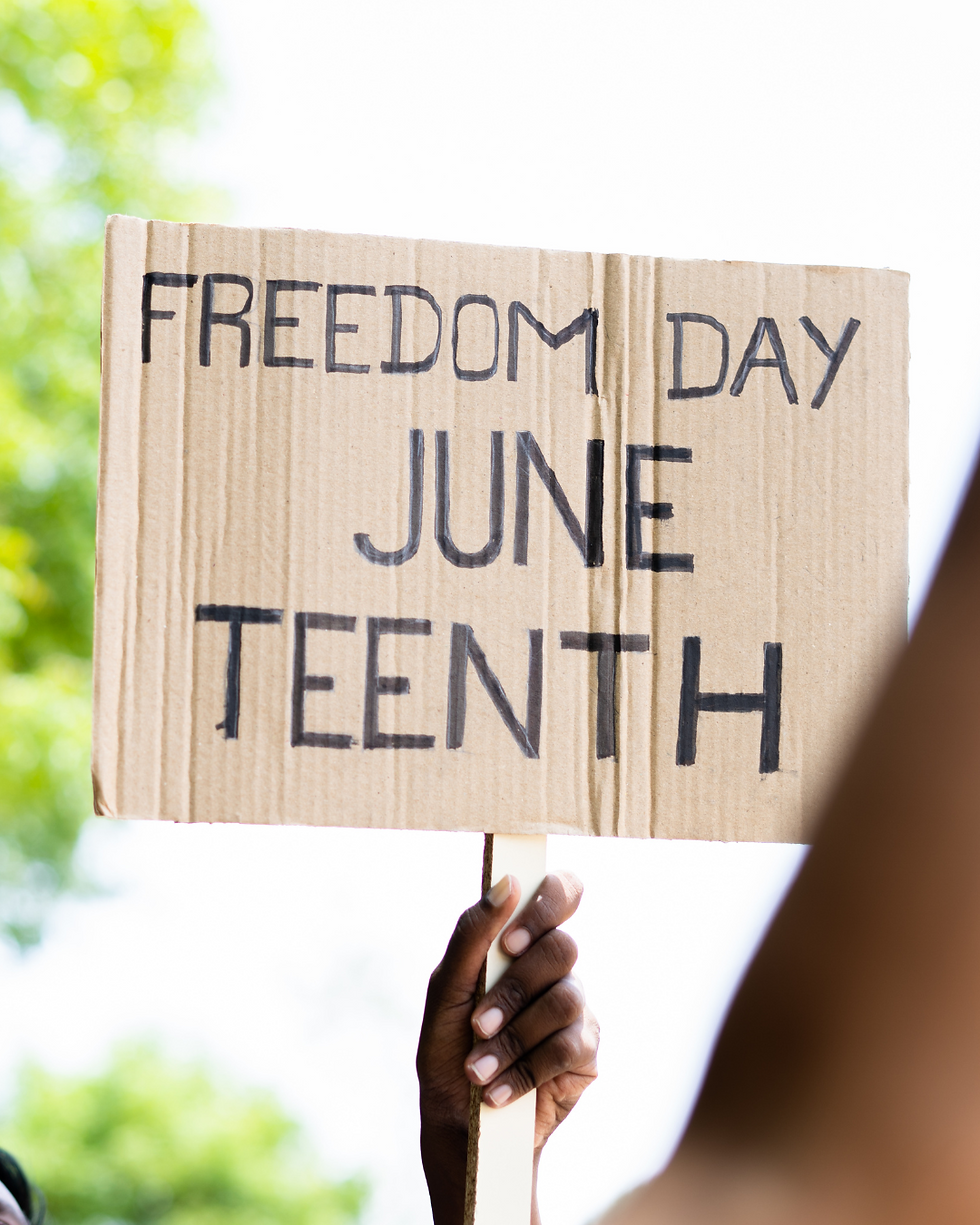Freedom in Full Color: A Personal Reflection on Healing, Joy, and Taking Up Space
- Mika Newton

- Jun 15
- 4 min read

When I think about freedom—real freedom—I’m not just thinking about history books or protests. I’m thinking about the kind that lives in the body. The kind that whispers, “You don’t have to shrink anymore.” It’s a freedom that doesn’t wait for approval. It’s the freedom that shows up in your breath, in the way you take up space, in the way you allow yourself to laugh without looking over your shoulder.
True freedom is not a single event in history. It’s a way of existing. It’s walking into a room without apologizing for being there. It’s speaking in your voice without softening it to make others comfortable. It’s releasing the pressure to perform perfection before you grant yourself peace.
This month carries three powerful celebrations of liberation: Juneteenth, PRIDE, and Black Music Month. Each speaks to a different form of freedom—and each reminds us that liberation is a process, not a milestone.
Juneteenth marks June 19, 1865, when Union soldiers brought word to Galveston, Texas, that the Civil War had ended and slavery was abolished—two and a half years after the Emancipation Proclamation. For those who had been enslaved, freedom came late, and it came with the reality that systems of oppression would not vanish overnight. Juneteenth became a tradition of remembrance and joy—music, prayer, food, and community—a declaration that our history is ours to honor and our joy is ours to protect.
PRIDE honors the LGBTQ+ community’s ongoing fight for equality and safety. Its roots trace to the Stonewall uprising of 1969, when queer and trans people, many of them Black and Brown, resisted police violence. Today’s parades and celebrations stand as both resistance and affirmation: that love is not negotiable, that identity is not up for debate, and that visibility is still a radical act.
Black Music Month celebrates the soundtracks of our resilience. From spirituals coded with messages of escape, to jazz that improvised liberation into every note, to hip-hop narrating our reality, Black music has been a healer, a protest, and a bridge between generations. Our music carries the voices of our ancestors while creating new rhythms for the future.
As a Black woman, I’ve had to unlearn the belief that worth is tied to output. The pressure to be “strong” at all times is exhausting. Freedom for me has meant recognizing that I am worthy of softness, stillness, and care without earning them first. Wellness, in its truest form, is not a performance—it is a right.
That wellness shows up in boundaries. It shows up in the ability to say “no” without explanation. It lives in moments where you allow your body to rest before it reaches breaking point. It is in the deep breaths you take when no one is watching.
There was a time when I lived in the cycle so many of us know—overworking, overgiving, and mistaking burnout for success. My body eventually demanded that I stop. In that stillness, I found sound therapy—or perhaps, it found me.
Sound therapy is more than music. It is vibration that meets the body in places words cannot

reach. Using instruments like Tibetan singing bowls, gongs, or tuning forks, it sends waves through the body that help release tension, slow the breath, and quiet the mind. It is not about doing; it is about receiving.
This practice is rooted in traditions much older than modern wellness trends. In many African cultures, rhythm has long been a source of connection and healing. Drums called communities together, marked sacred moments, and supported spiritual rituals. Science now confirms what our ancestors knew intuitively: sound can shift brain waves, calm the nervous system, and promote emotional balance.
Black music, too, is medicine. It is history and healing woven together. Whether it’s a playlist that energizes you in the morning, a hymn that grounds you in faith, or a beat that gets you moving without thinking, music connects us to ourselves and to one another.
This month, I’m asking myself:
Where have I traded my peace to be palatable?
Where do I still need to reclaim myself—creatively, emotionally, spiritually?
How can I keep choosing myself without guilt?
These questions are not meant to be answered once and set aside. They are ongoing markers for the path back to ourselves. They remind us that freedom is active—it requires us to notice where we have been diminished and to choose expansion instead.
You don’t need permission to be free. You don’t need perfection to be worthy of peace. And you certainly don’t need to wait for the world to understand before you start living in full color.
Living in full color means wearing what feels like you, even if it turns heads. It means speaking your truth in your own tone. It means loving in a way that reflects your spirit, not someone else’s expectations.

This is your invitation to breathe deeper, love louder, and move differently. Not just to survive—but to be fully alive. It is the reminder that joy is not frivolous—it is a declaration that you exist and that your existence matters.
So laugh freely. Dance in your kitchen. Sit in stillness and know it is enough. Make your life a space where wellness is not something you wait for but something you claim every day.
Your wellness is your birthright. Your joy is essential. Your rhythm is sacred. Rest, creativity, and pleasure are not indulgences—they are acts of reclamation.
“When a Black woman sets herself free, she doesn’t just heal herself—she shifts the entire lineage.” - Unknown
Take up space. Reclaim your time. Live like the revolution you are. And remember—your liberation will always ripple outward.










Comments